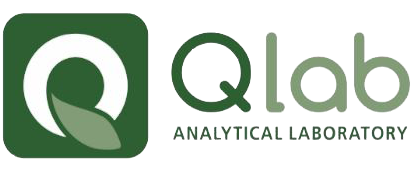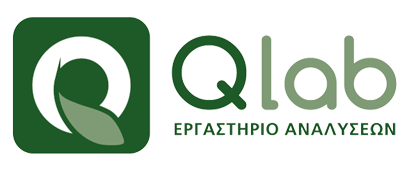MOLECULAR ANALYSIS
Qlab’s newly established molecular analysis laboratory undertakes special molecular analysis in real time PCR in cases where it is required: The sensitivity of the method to be high (high sensitivity of the method, immediate result within 24 hours and finding genetic modifications and specific genes.
Water & surfaces: Legionella
The molecular detection of Legionella gives results in 4 hours! Moreover, itis possible to identify Legionella serotypes and detect Legionella pneumophila serotype 1 which is responsible for Legionnaires’ disease.
Food: GMOs
The accredited laboratory analysis cover regulations 1829/2003 / EC and 1830/2003 / EC and further amendments. The laboratory is accredited according to the standard ELOT EN ISO / IEC 17025 by the National Accreditation System (ESYD) for the qualitative analysis of Genetic Modification in agricultural products (such as soybeans and corn), seeds and flour.
Screening analysis is used based on the detection of eight (8) genetic elements, ensuring the control of the largest range of Genetic Modifications, circulating in the global market.
SCREENING PACKAGE 1: p-35S promoter sequence, T-NOS termination sequence, p-FMV promoter sequence
SCREENING PACKAGE 2: bar gene region, p-35S-pat gene region, CTP2-CP4-EPSPS element, p-35S-nptll element, T-NOS-nptll element
Possibility of eliminating false positive 35S results due to the CaMV donor organism.
Food: Salmonella & Listeria monocytogenes
In case of food and environmental samples suspected in the presence of Salmonella spp and / or Listeria monocytogenes, molecular detection gives the answer in 24 hours! The classical microbiology protocols for the detection of Salmonella spp and Listeria monocytogenes give results from 3 to 7 days and with much lower sensitivity and specificity compared to molecular detection.
Environmental samples: Salmonella
Veterinary: Zoonoses
African swine fever virus, swine parvovirus (infectious infertility)
Crops: Xylella fastidiosa
Xylella fastidiosa is a phytopathogenic bacterium that causes damage to crops of high economic value such as: olive, vineyard, almond, peach, apricot, citrus, medicinal plants. It was first located in 2013 in the Province of Lecce (Italy) causing huge damage. During the summer, the symptoms of the infestation become more apparent with chlorination, the drying of leaves and shoots, and eventually the wilting and drying of the entire tree.
COVID 19
In collaboration with a clinical laboratory, nasopharyngeal smears are sampled for PCR analysis and rapid tests (antigen tests). In addition, the test and sampling instructions for quality detection of COVID-19 antibodies are available.




